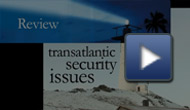Smart defence. Two innocous sounding words. And words which immediately hint at common sense. After all, who would want dumb defence?
But since it was announced as a key NATO project, Smart Defence seems to have elicited more questions than answers.
In this edition of NATO Review, we have tried to unravel some of the questions. But we know that answers can not only depend on the question, but also on who’s answering it. So we offer several different angles: from economic, practical and analytical angles.
Smart defence. Two innocous sounding words. And words which immediately hint at common sense. After all, who would want dumb defence?
But since it was announced as a key NATO project, Smart Defence seems to have elicited more questions than answers.
Questions like: how will it work? How will it be funded? How do you get 28 countries to agree on a single set of defence spending priorities? And where do partners fit in? And many more.
There is even a debate over how defence should be spelt.
In this edition of NATO Review, we have tried to unravel some of the questions. But we know that answers can not only depend on the question, but also on who’s answering it. So we offer several different angles: from economic, practical and analytical angles.
We look to get examples from those who know. And we present both the positives and possible obstacles of the project.
After you have heard from the experts, you’ll have a better idea of what Smart Defence plans to do. And also see that it is exactly that – a plan. And a long term one.
In other words, Smart Defence is not a quick fix project. It’s going to take time. But when it is fully in practice, it could be the catalyst for a whole new NATO.
Paul King





























